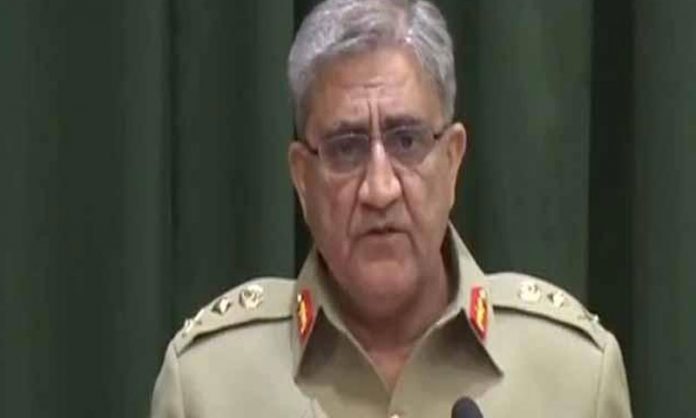ISLAMABAD: Chief of Army Staff (COAS), General Qamar Javed Bajwa said on Wednesday that China Pakistan Economic Corridor (CPEC) was future of Pakistani people and there would never be any compromise over it.
“This (CPEC) is the future of our people, a vital national interest on which we will never compromise, regardless of the loudness of opposing voices,” he said while addressing a seminar on ‘Interplay of Economy and Security’ here.
The seminar was organized by Inter-Services Public Relations (ISPR) in collaboration with Federation of Pakistan Chambers of Commerce and Industry.
The Army Chief said that CPEC was not just a collection of infrastructure and power projects but in fact a complete development platform that had the potential to act as a powerful springboard for shared development in the entire CASA (Central Asia-South Asia) region.
“It is also an example of regional cooperation and a break from politics of confrontation – we want all to benefit from this project.”
However, he said the completion of the project and, more importantly, optimization of its socio-economic dividend for Pakistan and the region hinged on one word: “security”.
“Our region in general and the immediate neighbourhood in particular has failed to take off due to peculiar security challenges.
I sincerely believe that the region will sink or sail together – that is how it has played out across the world.
“I want to use this opportunity to earnestly convey to our neighbours to the East and to the West that our destinies are inextricably linked,” he added.
He said until the current environment of mutual distrust was eliminated, it could not be possibly imagined for the nations of the region to rise together into enduring peace and socio-economic development. “Peace and stability is in the interest of all and we must strive for it,” he maintained.
General Bajwa said that Pakistan was capable of creating sufficient fiscal space to address underlying structural problems through tax reforms, documenting economy, diversifying the export base, and encouraging savings to finance a level of investment that could sustain growth rate higher than the rise of population.
But this is not all, we have to rise together. We have to ensure that Balochistan, Interior Sindh, FATA, Southern Punjab and Gilgit-Baltistan also join us on the trajectory of growth and then move forward. It is with this integrated approach, that we will fulfill the vision of Quaid, he added.
He said the vision of integrated economic growth across Pakistan and across the region was noble, but it also needed to be secured.
“In today’s world, security does not come cheap. It is dependent upon economic prowess. It is here that our entrepreneurs must contribute by producing and exporting more. We have done our part on the security front, now its up to you (entrepreneurs) to take initiative and turn the economy around.”
The task at hand, he said was difficult, but Pakistani nation had done it before. “In the ’60s, we were among the economic leaders in Asia. The seventies brought trouble that tested the very fibre of our nationhood. We have fought hard to stay afloat ever since. We are just finding our feet with improved security. We need to start afresh on the economic front as well,” he said.
“If any nation can survive what we went through, it can also make its mark when the going is relatively easier.”
Underlining the need to improve country’s economy, the Army chief said that it (economy) touched almost all aspects of human life adding that it would not be wrong to say that economy was reflection of quality of our life.
“It reflects the wealth of a nation, but in doing so, it also indicates the nation’s health, including the strength of its institutions and the trust of its people,” he remarked.
He said in today’s world security and economy were interlinked. “Erstwhile USSR had no dearth of armoured divisions but it broke up due to weak economic base.”
Similarly, rich countries without corresponding security apparatus, he said might invite aggression from others.
“All nations today are reviewing the old dilemma of “Guns versus Butter”, that is; how to achieve a balance between economic viability and national security.
“Countries like Pakistan never had the luxury of such a review. We live in one of the most volatile regions of the world, dealing with multiple crises since inception, but increasingly so during the last four decades. Therefore, we must be able to evolve on the way. We have to continuously ensure a viable balance between economy and security. Only then will we arrive at a future that ensures sustained peace and happiness for our people,” he added.





